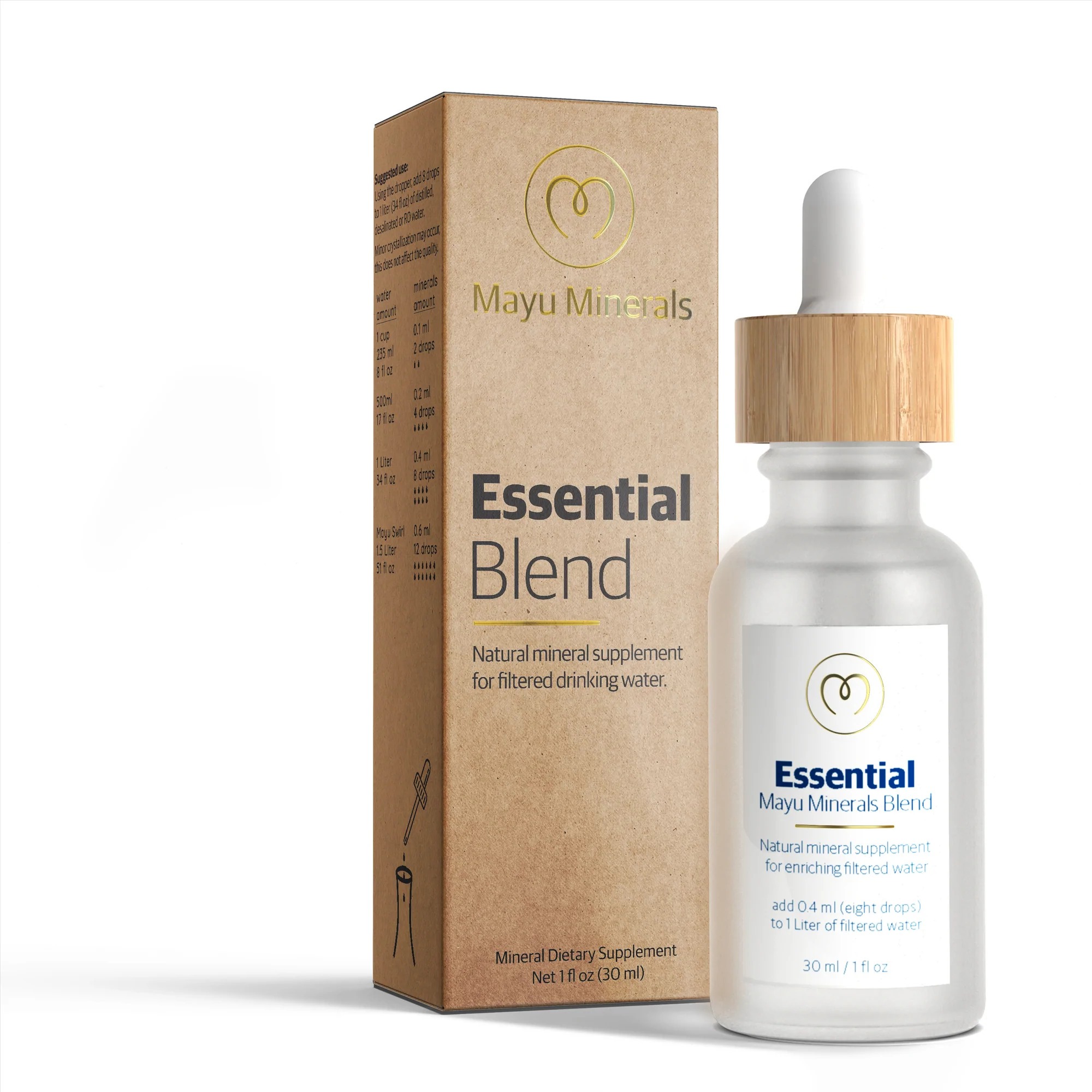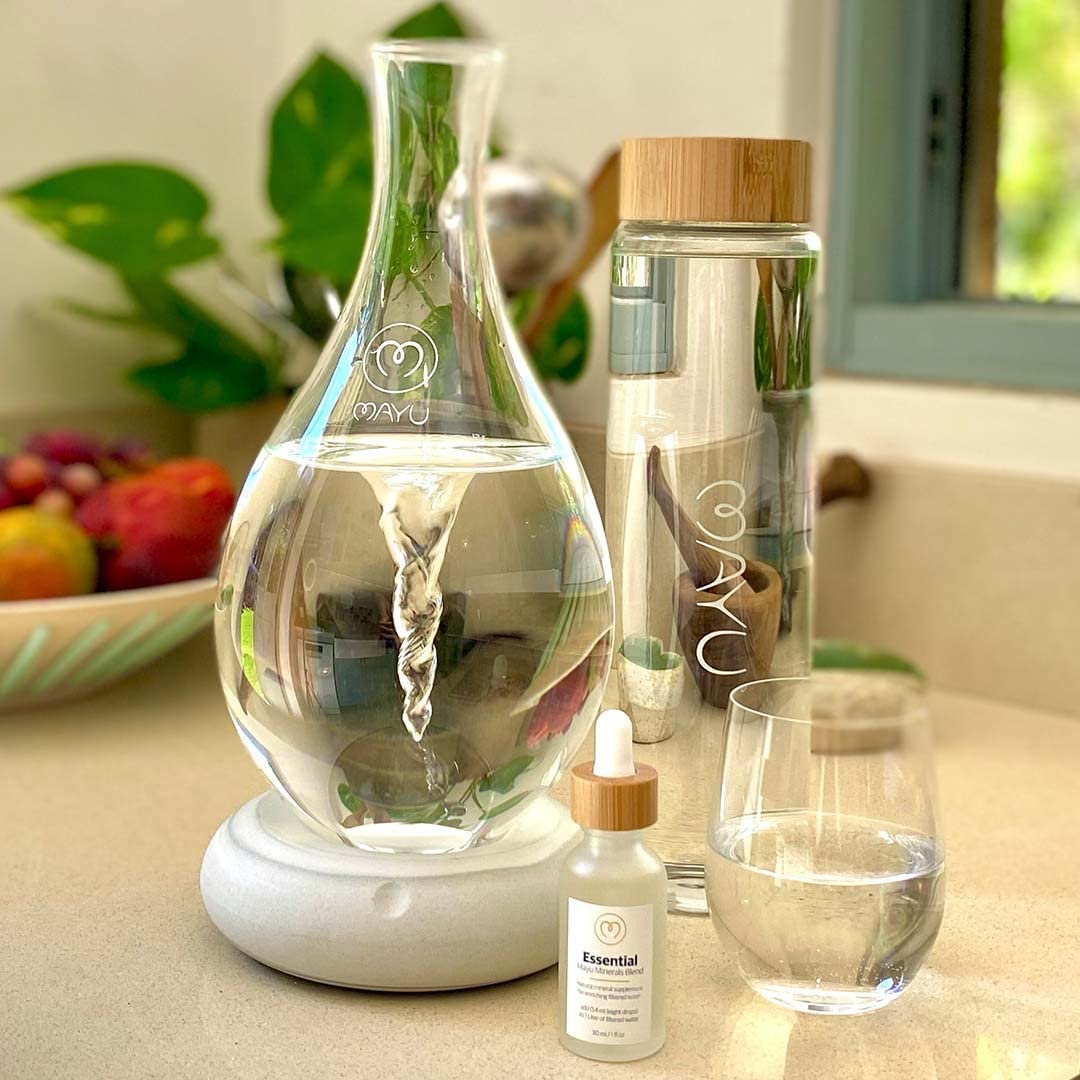4 Key Benefits of Reverse Osmosis Water for Your Health
Published October 6, 2024.

We all want cleaner, safer, and better-tasting water for our homes. Fortunately, installing a reverse osmosis system can bring you just that, and with many positive effects. Reverse osmosis is a water filtration process that removes contaminants from our drinking water by using high pressure to force the water molecules through a semi-permeable membrane.
Reverse osmosis filters out contaminants, leaving behind clean, tasty drinking water. Apart from RO water tasting a lot better, it also has various health benefits. In this article, we'll take a closer look at the four health benefits of RO water.
1. Removes Heavy Metals
2. Reduces Sodium Levels
3. Removes Parasites and Bacteria
4. Improves Water Quality
1. Removes Heavy Metals
Because the pore size of the reverse osmosis membrane is very small, it effectively removes heavy metals from the water. As it doesn't contain heavy metals, drinking RO water eliminates the risks posed by these metals.
Using reverse osmosis to remove metals like lead, mercury, iron, and arsenic is extremely beneficial, as heavy metals have a negative impact on our health.
- Lead: Most water pipes are made from metal, and they undergo corrosion with age, resulting in lead infiltrating our drinking water. Lead is one of the main contaminants in U.S. drinking water. Even trace amounts of lead are harmful to our health and may cause nerve damage, muscle damage, fertility issues, and developmental problems.
- Mercury: This dangerous neurotoxin enters our drinking water through rain and snow, which carry this substance through the air into water supplies like rivers, lakes, and reservoirs. Mercury also seeps into underground water supplies from industrial waste sites. Prolonged exposure to mercury can cause conditions like kidney damage and negatively impact the nervous system.
- Iron: This heavy metal enters our drinking water as a result of rainwater dissolving the iron found in the earth's surface, causing it to seep into underground aquifers that serve as groundwater for wells. Iron gives water a metallic taste and encourages the growth of harmful bacteria and organisms.
- Arsenic: This metal enters our drinking water naturally when mineral deposits like rocks containing arsenic erode and dissolve. It also enters groundwater sources through industrial and agricultural waste. Arsenic is one of the main risk factors for public health, and it can cause nausea, stomach pain, vomiting, high blood pressure, heart disease, and nerve effects, including pain and numbness.
» Reverse osmosis vs. tap water filters: learn which is safer for drinking
2. Reduces Sodium Levels
Drinking large amounts of unfiltered tap water results in the consumption of high levels of sodium. Excessive sodium intake can lead to high blood pressure, heart issues, and an increased risk of a stroke. A reverse osmosis filtration system is a good choice for those following a low-sodium diet, as the water filtered in this way will have reduced sodium levels.
» Learn the important health benefits of filtered water
3. Removes Parasites and Bacteria
Reverse osmosis filters out parasites and bacteria from your drinking water. For example, this filtering system removes cryptosporidium, which is a parasite that affects the small intestine, causing fevers and cramps.
As the pore size of a reverse osmosis membrane is typically between 0.5 and 10 nanometers as opposed to the size of bacteria and parasites in drinking water, which is generally between 500 and 5000, reverse osmosis is very effective at removing these particles. RO is highly recommended in areas that have dirty water systems to ensure you're drinking clean, safe water.
4. Improves Water Quality
Contaminated water that contains harmful bacteria, parasites, metals, chemicals, microplastics, and other detrimental substances negatively affects our overall health. Drinking clean water with improved water quality will not only reduce the risk of disease, but it will also be beneficial for hydrating the body.
Being properly hydrated helps our bodies naturally flush out toxins, whereas contaminated water results in more toxins entering the body than leaving it, creating a harmful environment for illness and bacteria to spread. Using clean water even just to rinse fruit and vegetables before eating them is important, and the same applies to washing our bodies.
» Learn how microplastics are damaging your health
Reap the Health Benefits of RO Water
Reverse osmosis holds key health benefits, as it removes pollutants, contaminants, and heavy metals from your drinking water. However, as it's such an effective filtering process, it also removes the essential minerals found in our drinking water.
So, as water treated in this way doesn't contain any minerals, it's important to remineralize reverse osmosis water to add back some minerals. The easiest way to do this is by adding Mayu's Essential Mineral Drops, which are simply mixed into your drinking water.




Adding minerals to water in the form of drops is one of the healthiest ways to remineralize RO water and add back the essential minerals your drinking water should have, ensuring you're drinking the best quality water available.





